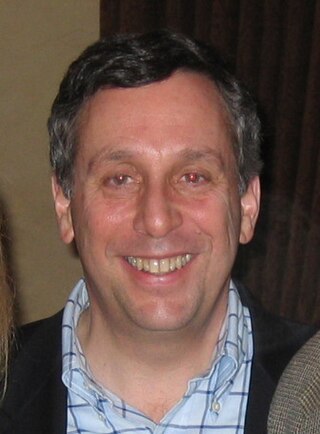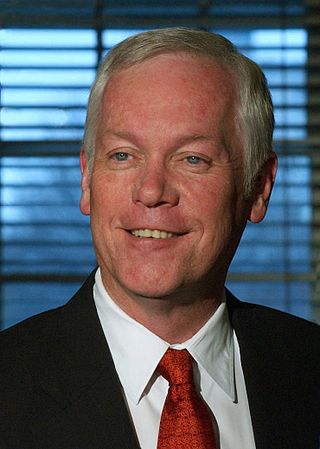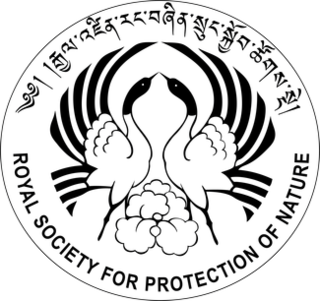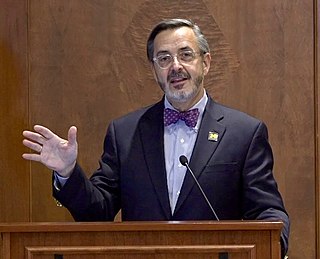
Tufts University is a private research university in Medford and Somerville, Massachusetts, United States, with additional facilities in Boston and Grafton, as well as Talloires, France. Tufts also has several Doctor of Physical Therapy programs located in Boston, Phoenix and Seattle. It was founded in 1852 as Tufts College by Christian universalists who sought to provide a nonsectarian institution of higher learning. Tufts remained a small liberal arts college until the 1970s, when it transformed into a large research university offering several doctorates. The corporate name of the university is "Trustees of Tufts College".

Macalester College is a private liberal arts college in Saint Paul, Minnesota, United States. Founded in 1874, Macalester is exclusively an undergraduate four-year institution with an enrollment of 2,142 students in the fall of 2023. The college has Scottish roots and emphasizes internationalism and multiculturalism.

Hampshire College is a private liberal arts college in Amherst, Massachusetts. It was opened in 1970 as an experiment in alternative education, in association with four other colleges in the Pioneer Valley: Amherst College, Smith College, Mount Holyoke College, and the University of Massachusetts Amherst. Together they are known as the Five College Consortium. The campus also houses the National Yiddish Book Center and Eric Carle Museum, and hosts the annual Hampshire College Summer Studies in Mathematics.

The University of Massachusetts is the five-campus public university system in the Commonwealth of Massachusetts. The university system includes six campuses, a satellite campus in Springfield and 25 smaller campuses throughout California and Washington with the University of Massachusetts Global.

The University of Vermont (UVM), officially titled as University of Vermont and State Agricultural College, is a public land-grant research university in Burlington, Vermont, United States. Founded in 1791, the university is the oldest in Vermont and the fifth-oldest in New England, making it among the oldest in the United States.

Lawrence Seldon Bacow is an American economist and retired university administrator. Bacow served as the 12th president of Tufts University from 2001 to 2011 and as the 29th president of Harvard University from 2018 to 2023. Before that, he was the Hauser leader-in-residence at the Center for Public Leadership at Harvard Kennedy School.

Environmental education (EE) refers to organized efforts to teach how natural environments function, and particularly, how human beings can manage behavior and ecosystems to live sustainably. It is a multi-disciplinary field integrating disciplines such as biology, chemistry, physics, ecology, earth science, atmospheric science, mathematics, and geography.

Brian Christopher Mitchell is the president and managing principal of Academic Innovators. Prior to founding Academic Innovators, he served as president of Brian Mitchell & Associates, LLC. He was previously the president of Bucknell University, serving from 2004 until 2010. From 1998 through 2004, he served as president of Washington & Jefferson College. He is a nationally recognized expert in higher education, especially on private higher education.

The University of Findlay (UF) is a private Christian university in Findlay, Ohio, United States. It was established in 1882 through a joint partnership between the Churches of God General Conference and the city of Findlay. UF has nearly 80 undergraduate programs of study leading to baccalaureate degrees and offers 11 master's degrees and five doctorate-level degree programs. Nearly 4,200 students from approximately 35 countries are enrolled at Findlay with an international student population of approximately 500. Approximately 1,250 students live on campus in university housing. The University of Findlay has a 76-acre (31 ha) main campus and five off-campus facilities.

Dr. Betsy Vogel Boze, is an American academic and higher education administrator who is currently serving as the ninth President of The College of The Bahamas. Previously, she worked as a professor of marketing, department chair, dean, and CEO of Kent State University at Stark, before serving as the president of The College of The Bahamas. She is a senior fellow at the American Association of State Colleges and Universities (AASCU), that researches alternative revenue streams for public colleges and universities.

John Angelo DiBiaggio was an American dentist and academic who served as president of the University of Connecticut from 1979 to 1985, president of Michigan State University from 1985 to 1992, and president of Tufts University from 1992 to 2001. He was a "people person" known for his fundraising skills and fostering collaboration, interdisciplinary research and learning, and civic engagement.

The Royal Society for the Protection of Nature (RSPN) is Bhutan's first and only non-governmental organization nonprofit organization with nationwide operations.

Domenico Grasso is an American engineer, professor and the sixth chancellor of the University of Michigan–Dearborn. He has previously served as provost of the University of Delaware, vice president for research and dean of two different colleges at the University of Vermont. Grasso is Smith College's Picker Engineering Program's founding director.

David W. Orr is the Paul Sears Distinguished Professor of Environmental Studies and Politics Emeritus at Oberlin College, and presently Professor of Practice at Arizona State University.

María Fernanda Espinosa Garcés is an Ecuadorian linguist, poet, politician, and diplomat. Currently, is Executive Director of GWL Voices, an NGO dedicated to achieve a gender-equal multilateral system. She served as an advisor on biodiversity and indigenous peoples (1999-2005) and was the regional director for South America (2005-2007) at the International Union for Conservation of Nature (IUCN). Espinosa Garcés was Ecuador's Minister of Foreign Affairs twice, from 2007 to 2008 and then from 2017 to 2018. She also served as ambassador and permanent representative to the United Nations in New York (2008-2009) and Geneva (2014-2017), and as Ecuador's Minister of National Defense (2012-2014). In June 2018, she was elected President of the United Nations General Assembly for the 73rd session by a two-thirds vote of the member states. Espinosa Garcés became the fourth woman in the seventy-three-year history of the United Nations to be elected President of the General Assembly. Besides her political career, she is also a poet and essayist.
Diana Chapman Walsh was President of Wellesley College from 1993 to 2007. During her tenure, the college revised its curriculum and expanded its programs in global education, internships and service learning, and interdisciplinary teaching and learning. The faculty established new majors in environmental studies, quantitative reasoning, cinema and media studies, neurosciences, and astrophysics. Japanese, Arabic and Korean languages were added to the curriculum as well, and a new department of East Asian Languages and Literatures was launched.

Laila Rashed Iskander Kamel is an Egyptian social entrepreneur and politician. She is formerly Egypt's Minister of State for Environment Affairs in the interim government of Prime Minister Hazem El Beblawi.
Claire Van Ummersen was an American scholar and academic administrator, who served as President of Cleveland State University from 1993 to 2001. She was also national leader in career flexibility in higher education and women's advancement and leadership.
The history of Tufts University, originally Tufts College, can be traced back to 1847 when the Universalist Church set up convention for the creation of a university for the parish. In 1858, the college was established when Boston businessman Charles Tufts donated 20 acres of land to the church to establish the college. It is the third oldest college that was founded in the Boston area. During the 19th century the college grew. The official college seal, bearing the motto Pax et Lux was adopted in 1857. The school colors of brown and blue were selected in 1876. Tufts' mascot became Jumbo when P.T. Barnum gave a natural history museum to the university.

Climate change education (CCE) is education that aims to address and develop effective responses to climate change. It helps learners understand the causes and consequences of climate change, prepares them to live with the impacts of climate change and empowers learners to take appropriate actions to adopt more sustainable lifestyles. Climate change and climate change education are global challenges that can be anchored in the curriculum in order to provide local learning and widen up mindset shifts on how climate change can be mitigated. In such as case CCE is more than climate change literacy but understanding ways of dealing with climate

















